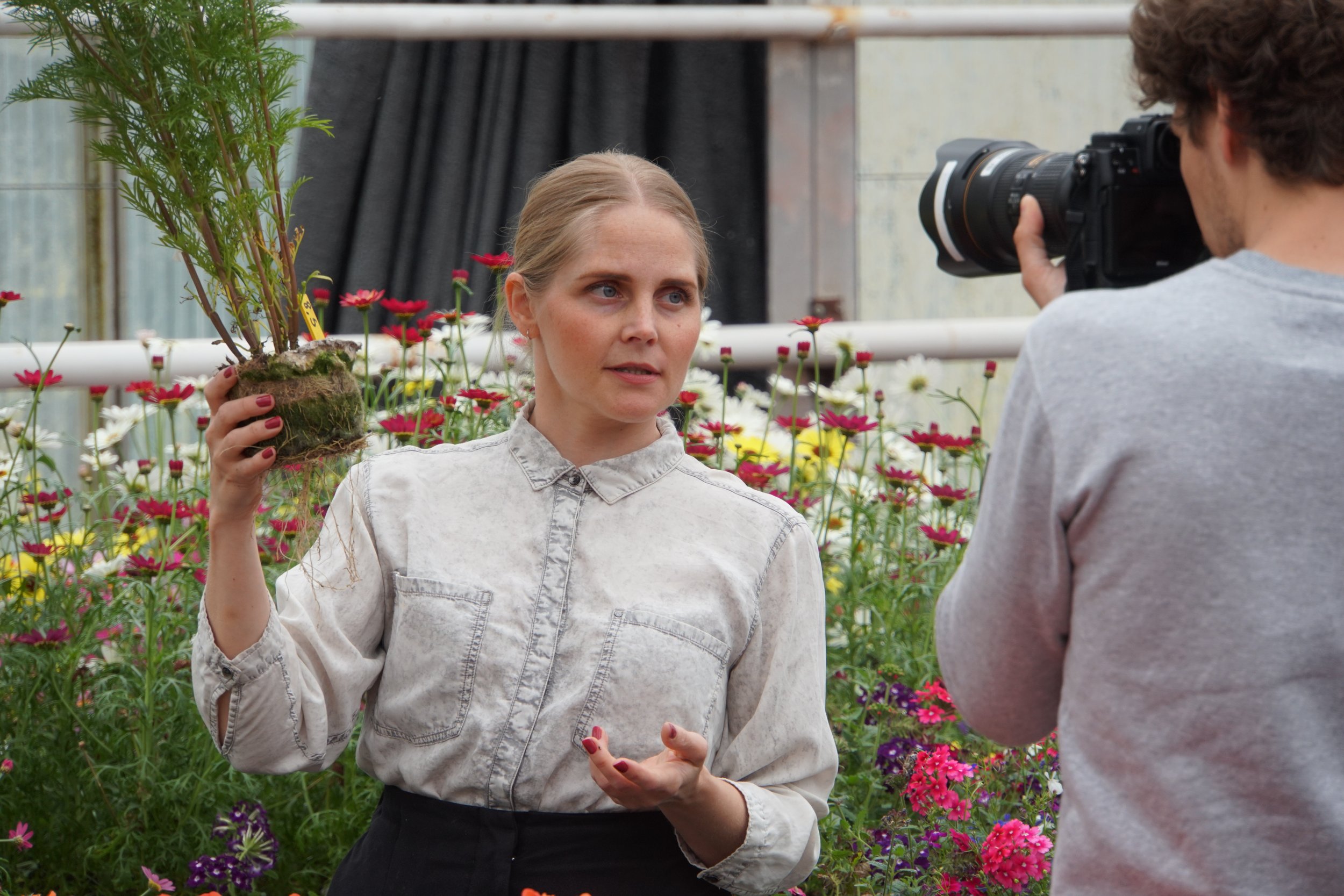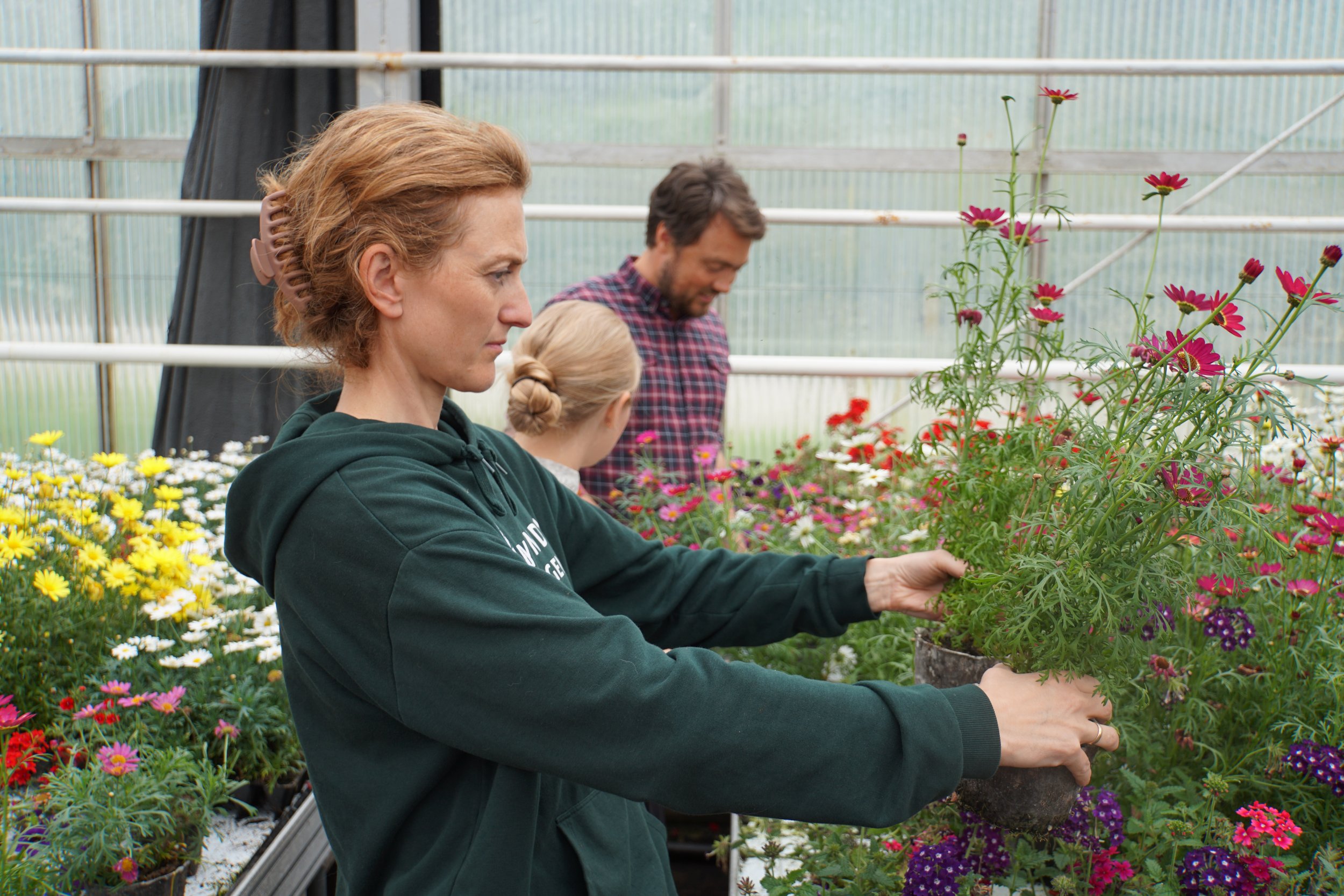Wool plant pots
© 2021, Woolly Pot™. Designed by Bioregion Institute (Silje Klepsvik & Birgitta Ralston).
At Bioregion Institute, we are proud to introduce Woolly Pot — an organic and fully biodegradable plant pot crafted from downgraded wool and an algae-based biobinder. With Woolly Pot, we address the environmental challenges posed by plastic use and microplastic pollution in horticulture and cultivation. Woolly Pot™ has the goal of replacing the fossil based plastic pots in Norwegian horticulture and agriculture with compostable pots made of downgraded wool.
Large quantities of plastic pots are used in nursery pots in today's agriculture. According to the total estimate for agriculture, the consumption in 2019 of plastic pots was around 5,000 tons in Norway alone. (1)
Most fossil based pots are thrown away and burned after single time use, as they can not be recycled or reused due to the risk of transmitting plant diseases.
At a time when agricultural land is becoming less fertile with an increasingly poorer earth structure, and where more plant nutrients are found in limited quantities, it is necessary to think about circular systems and how we manage our sources of nutrition in ways that causes nutrients and organic matter to be recycled.
© 2024 Woolly Pots™
1000 - 2000 tons of wool from Norwegian farms are classified as low value wool that get discarted or burnt. The downgraded wool is not suitable for the clothing industry and is not being utilized in other ways. Degraded wool is a nutritious resource that can be used in plant pots to reduce plastic consumption and provide nutrition to plants. (2)
Bioregion Institute has now received financial support from Handelens Miljøfond for a preproject to develop pots from downgraded wool. Together with NORSØK, Toppe Gartneri and Bybonden we are initiating this project in 2022 with the common goal to reduce plastic waste from Norwegian horticulture and agriculture.
Categories
Biomaterial
Delivery
Material Research
Innovative production
Biobased raw material
Spin off
Timeline
2021 – ongoing
Funded by
Research Council of Norway
Handelens Miljøfund
Partners
Norsøk
Toppe Gartneri
Bybonden
Sjølingstad Uldvarefabrik
Research team
Silje Klepsvik
Birgitta Ralston
Lars Haugen Aardal
www.woolly.no






